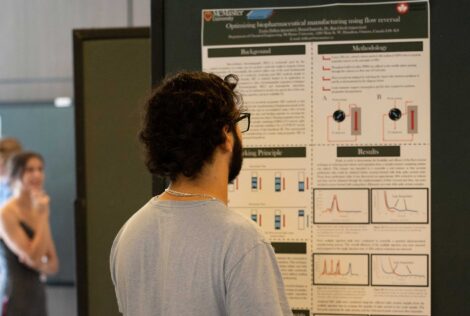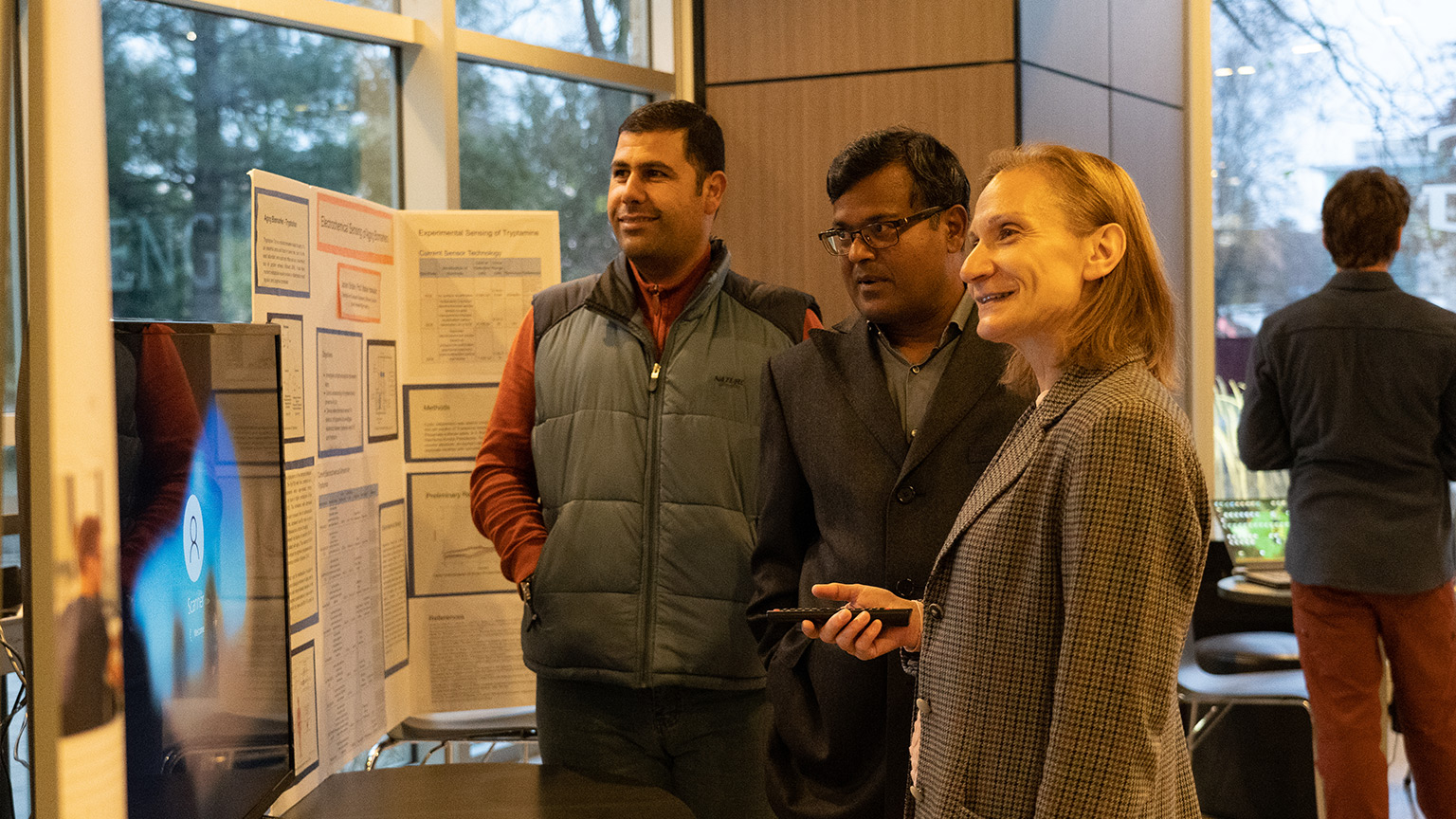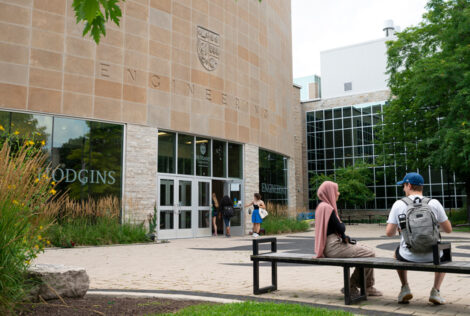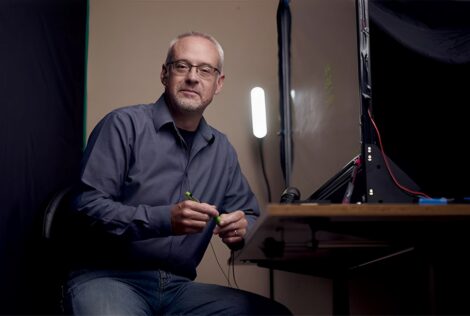

Following an announcement this past April that the Natural Sciences and Engineering Research Council (NSERC) and the Faculty of Engineering would continue to fund nearly 97 awards amid COVID-19, plans are now underway to provide remote research opportunities and support for student researchers.
The Faculty’s Associate Dean of Research, John Preston was the first to initiate discussions with NSERC to secure funding for students.
“We wanted to get started as soon as possible,” said Preston. “The challenges of providing a quality summer research experience for our students required partnering with them.”
The McMaster Society of Engineering Research (MacSER), a student club which aims to create a strong community of student researchers from different engineering disciplines, were receptive to the Faculty’s actions.
“I was impressed with the initiative McMaster Engineering took,” said Maddison Konway, MacSER co-president and materials science & engineering student. “It truly speaks to the excellence of our faculty and the emphasis placed on research.”
Now, with research transitioning outside the lab and into students’ homes, the Faculty is working with students to determine the types research they will be supporting and how.
“We have 50 new COVID-19 research programs that touch everything from public transportation to digital technologies to manufacturing,” said Preston. “The demand for student research is certainly still there.”
“Our Faculty is well known for its innovative research and contributions that enhance McMaster’s position as Canada’s most research-intensive university,” added Ishwar Puri, Faculty of Engineering Dean. “We are successful because our students are central to our research work and its success.”
Mathematical modeling, simulations, analytical work, literature research and career development training are just some of the types of work students will be undertaking remotely.
“Our top priority is to determine how to be effective researchers in this new world of working,” explained Preston. “We’re figuring out what remote student research looks like as we go, and we want to challenge students to help us in this process.”
According to Konway, the overall response from students has been positive with many of them enjoying the flexibility of working from home and choosing their own hours.
Annika Yardy, a fourth year biochemical engineering student, will be working with Jake Nease, chemical engineering associate chair and Li Xi, chemical engineering assistant professor, as a course developer this summer.
“Dr. Nease and Dr. Xi are amazing, incredibly flexible, and understanding co-supervisors,” said Yardy. “We are all staying connected on Microsoft Teams, where I’m sure the camaraderie amongst our team will continue.”
MacSER is working with Engineering Co-op and Career Services (ECCS) and the Engineering Graduate Society (EGS) to support students through the creation of an online mentorship program, weekly events, virtual lectures, workshops, socials, and an online poster showcase.
“We want to try new things we believe will be useful tools going forward, even when the current situation improves,” said Konway.
The first event for student researchers is the Summer Research Kickoff happening on Wednesday, May 13 at 5:30 pm. Students will receive a welcome and an overview of what to expect this summer.


